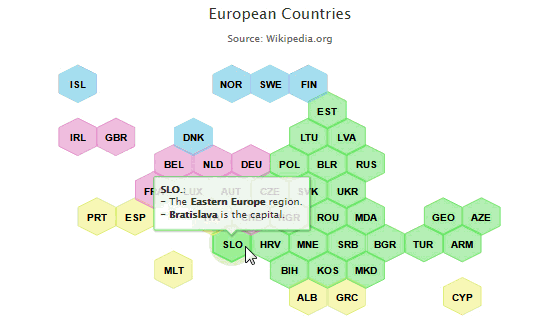Is America becoming Orwell's nightmare?
How did data turn the world upside down? How will Trump's immigration ban effect non-US citizens' data? Why have MPs questioned the UK government's ability to protect from cyber attacks? Are you ready for Data D-Day? What really happens to your big data after you die?
Privacy
Is America becoming Orwell’s nightmare? EXCELLENT (lengthy) write-up by Stephen Rohde comparing Orwell's Nineteen Eighty-Four to current day society. The establishment maintains power by "instilling fear, inflaming patriotism, creating an obedient citizenry, and establishing a pervasive surveillance state". Sound familiar? 😨 Extremely worthwhile read - especially if you still haven't read the book..
Continuing the topic of the "surveillance state", The Intercept obtained two large FBI manuals which reveal the FBI's previously concealed powers; just conducting the lowest-level "assessment" allows the FBI to "follow people with planes, examine travel records, and run subjects’ names through the CIA and NSA." 🙃
The data that turned the world upside down. Building on last week's discussion over how Cambridge Analytica (CA) assisted Trump's campaign, the below image shows an example of quite how finely targeted every element of campaign was - "pretty much every message that Trump put out was data-driven" (Alexander Nix, CA CEO). 🤐

Groundgame, an app for election canvassing that integrates voter data with "geospatial visualization technology," was used by campaigners for Trump and Brexit.
How will Trump's immigration ban effect non-US citizens' data? Tom Henderson hypotheses that future border searches could be of social media data - "individuals who are not US citizens or green card holders can have their communication usage monitored without warrant". 😨 Could the infamous 'wall' also be an Internet Wall?
In response to Trump's temporary immigration ban, Natalia Bronshtein interactively visualised 200 years of US immigration data (see screenshot below). The graph especially shows the increasing immigration and diversity since World War II. Bronshtein argues that "no one leader or piece of legislation is capable of staunching the diverse flow of immigrants to the US". Side note - how scientists can protect their data from Trump. 💪

200 years of US immigration data, visualised by Natalia Bronshtein.
Security
UK MPs have questioned the government's ability to protect the UK from cyber attacks - due to a "skills shortage" and "chaotic handling of personal data breaches". Cyber attacks are one of the biggest risks to national security. ⚔ The weakest link is people and how they manage sensitive information - such as copying confidential files on to laptops. ⛔
Data D-day is looming. Eve Maler, VP of Innovation and Technology of ForgetRock Inc, stresses "companies that do not get more transparent about data-sharing risk big losses in the near future". Customers across the globe will begin asking "What is it you're sharing about me?" and companies need to be prepared to answer - especially when GDPR comes into action next year. The legislation is going to effect pretty much every multinational enterprise "that monitors or sells to EU citizens". 😳 Watch the full interview here.
Hackers stole the login details of 2.5 million PlayStation and Xbox users in September 2015. The personal information includes email addresses, account passwords and IP addresses. Check yo'self: haveibeenpwned.com -- GDPR will make it compulsory for organisations to report data breaches within 72 hours of discovering them. But - reportedly, only 20% of UK banks are confident in their ability to detect a data breach. 😱
New European projects are looking at how to protect critical data transfers - including healthcare data. Sharing our personal heath data can have numerous benefits: from making treatments "more personalised, rapid and therefore more effective", to doctors abroad having access to our medical history if you "unexpectedly need medical treatment", to detecting "the very early stages of epidemics before they spread". But - sharing this sensitive data needs to be through a security and privacy compliant system.
Miscellaneous
GitLab sysadmin accidentally deleted 300GB of data - and NONE of the five backups were "working reliably or set up in the first place". 😳 The servers were back up and running quickly, but around six hours of data was lost. TAKEAWAY - how GitLab handled the crisis with honesty and transparency by live streaming their progress.
Scientists have used big data to create a 'map' (see below) "linking the shape of breast cancer cells to genes turned on and off and matched it to real disease outcomes". This will potentially help doctors select treatments - bringing breast cancer research forwards by "decades". ✅

Large sets of data used to map out this network of cell shape and genes.
What really happens to your (big) data after you die? Bernard Marr argues that future historians will use it to rebuild the past: "with the advent of wearable technology, autonomous cars and the ever-increasing number of cameras watching over us, it’s possible that they will be able to reconstruct our lives in minute detail". 🆒
Findings by Freedom House show that 2016 was the "11th consecutive year of decline in global freedom". Check out their interactive data visualisation showing how freedom differs across the globe. 🌍
The American government released 16 years of that space weather data to the public for the first time. The release was due to an Executive Order signed by Obama "on the grounds that space weather events have the potential to cause catastrophes down on Earth, meaning the information is relevant to the broader public". 🌞













